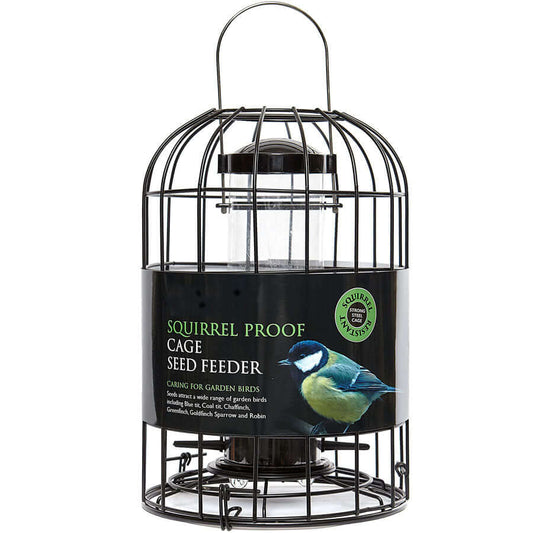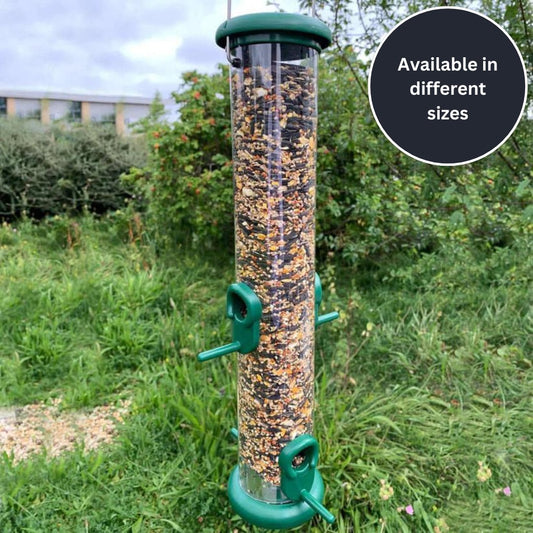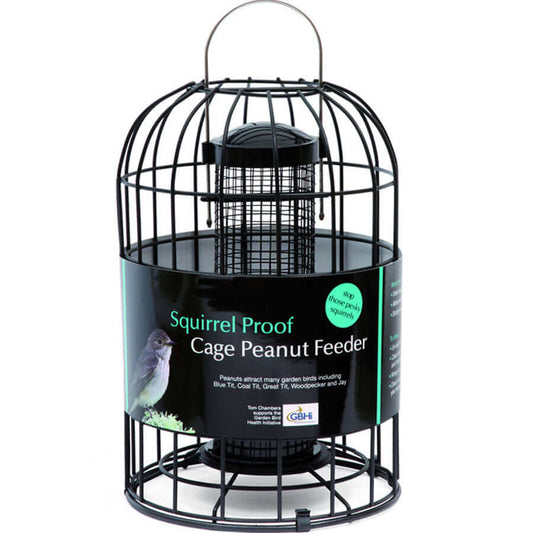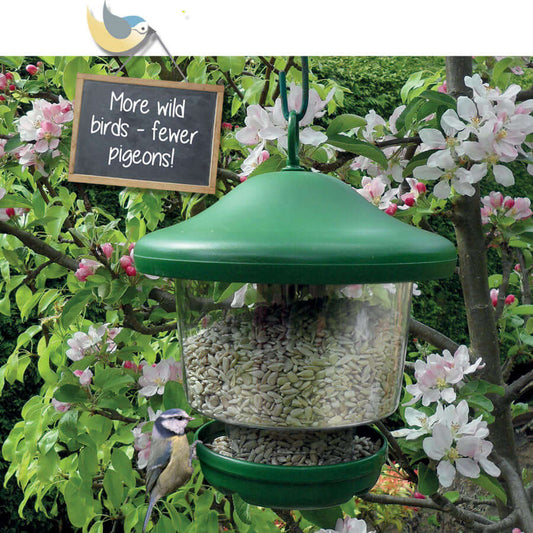What Kind Of Bird Feeders Do Birds Like Best?
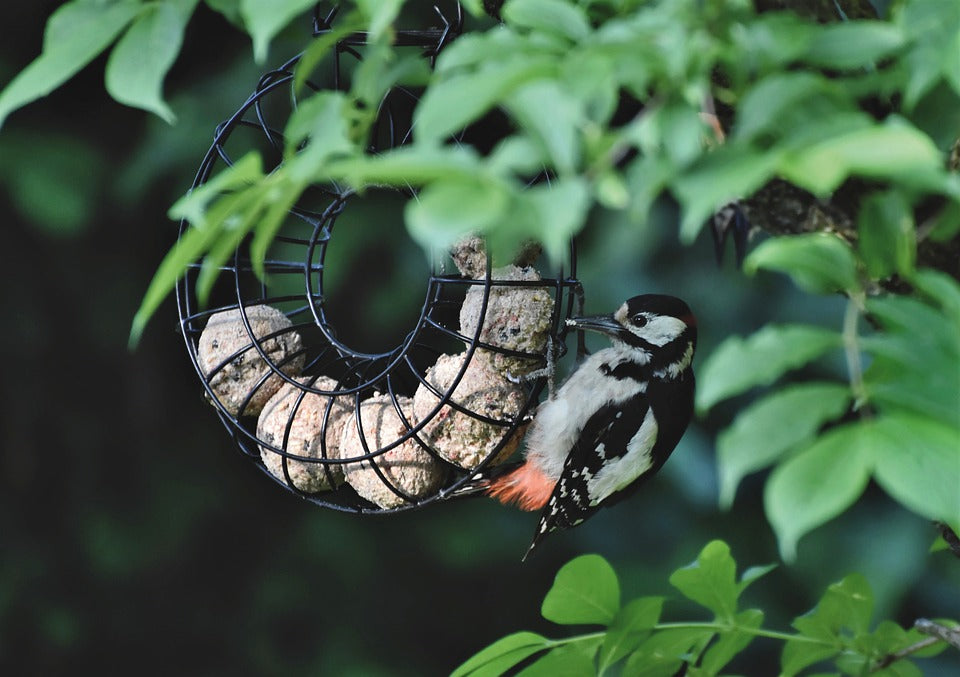
Bird feeding is a delightful way to connect with nature and support local wildlife. Selecting the appropriate bird feeder not only attracts a variety of species to your garden but also ensures their safety and well-being.
This guide will explore the types of feeders preferred by different birds, with a focus on small birds, discuss the best materials for feeders, and provide tips on choosing the right feeder for your needs. We'll also highlight some quality feeders for you & your birds.
Birds have diverse feeding habits, and understanding these can help you choose the most suitable feeder:
-

Ground Feeders
Species like robins are natural ground feeders. They prefer to forage close to or on the ground, searching for insects, seeds and fruits. Providing food on ground feeding trays or low platforms can attract these birds to your garden. Upmost care must be taken with these kind of feeders to limit the spread of disease. Read our blog 'The Ultimate Guide to Feeding Wild Birds Safely' for more advice.
-

Hanging Feeders
Many small birds, such as tits and finches, are adept at clinging to hanging feeders. These feeders often have perches and are designed to dispense seeds or nuts, catering to the feeding styles of these birds.
-

Suet and Fat Ball Feeders
During colder months, high energy foods like suet are essential. Feeders designed for suet or fat balls are particularly attractive to species such as woodpeckers and starlings.
Best Feeders for Small Birds
Attracting small birds requires feeders that cater to their size and agility.
-

Tube Feeders
Shop hereThese feeders are excellent for small birds like finches and tits. The slender design and small perches make it difficult for larger birds to access the food, ensuring that the intended small species can feed undisturbed.
-

Caged Feeders
Shop hereSome feeders come with protective cages that allow small birds to enter while keeping larger birds and squirrels out. This design ensures that the food is reserved for smaller species.
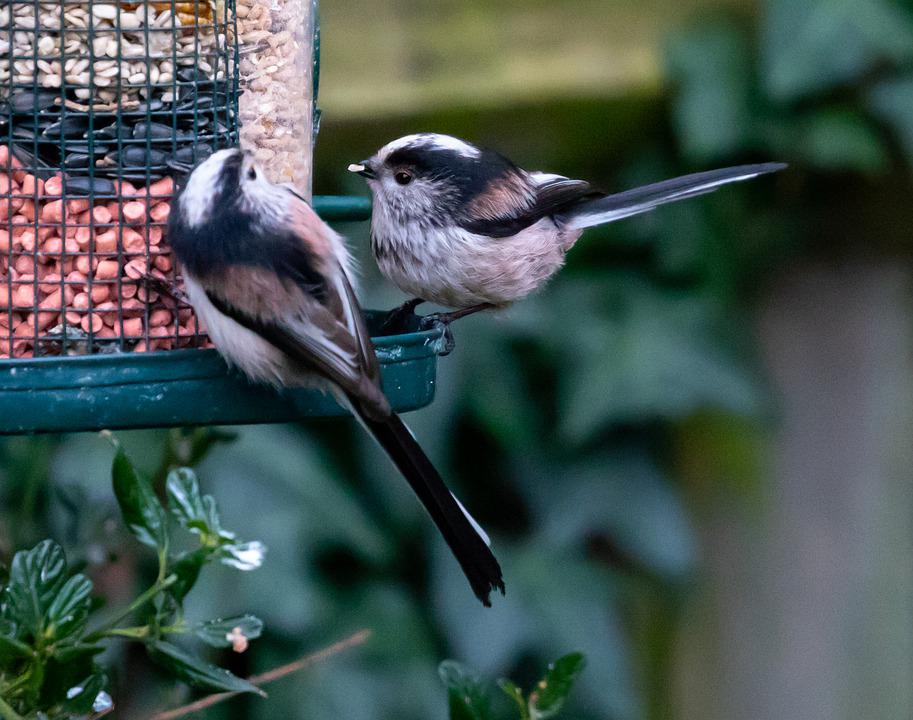
Choosing the Right Material for Bird Feeders
The material of a bird feeder affects its durability, maintenance, and attractiveness to birds.
-

Wood
Wooden feeders have a natural appearance that blends well into garden settings. However, they require regular maintenance to prevent rot and may be more challenging to clean.
-

Metal
Metal feeders are durable and often come with designs that deter squirrels. They are easy to clean and can withstand harsh weather conditions.
-

Plastic
High-quality plastic feeders are lightweight and easy to clean. However, they may become brittle over time due to exposure to sunlight.
Tips for Choosing the Right Feeder
When selecting a bird feeder, consider the following:
Target Species
Identify the bird species you wish to attract and choose a feeder that suits their feeding habits.
Feeder Placement
Place feeders in safe locations, away from predators and harsh weather conditions.
Ease of Cleaning
Opt for feeders that are easy to disassemble and clean to maintain hygiene and prevent disease.
Durability
Choose feeders made from sturdy materials that can withstand local weather conditions.
Squirrel Resistance
If squirrels are a concern, consider squirrel-proof feeders to ensure that birds have uninterrupted access to food.
Haith's Bird Feeders
We are pleased to offer you a diverse range of bird feeders catering to various species and feeding preferences:
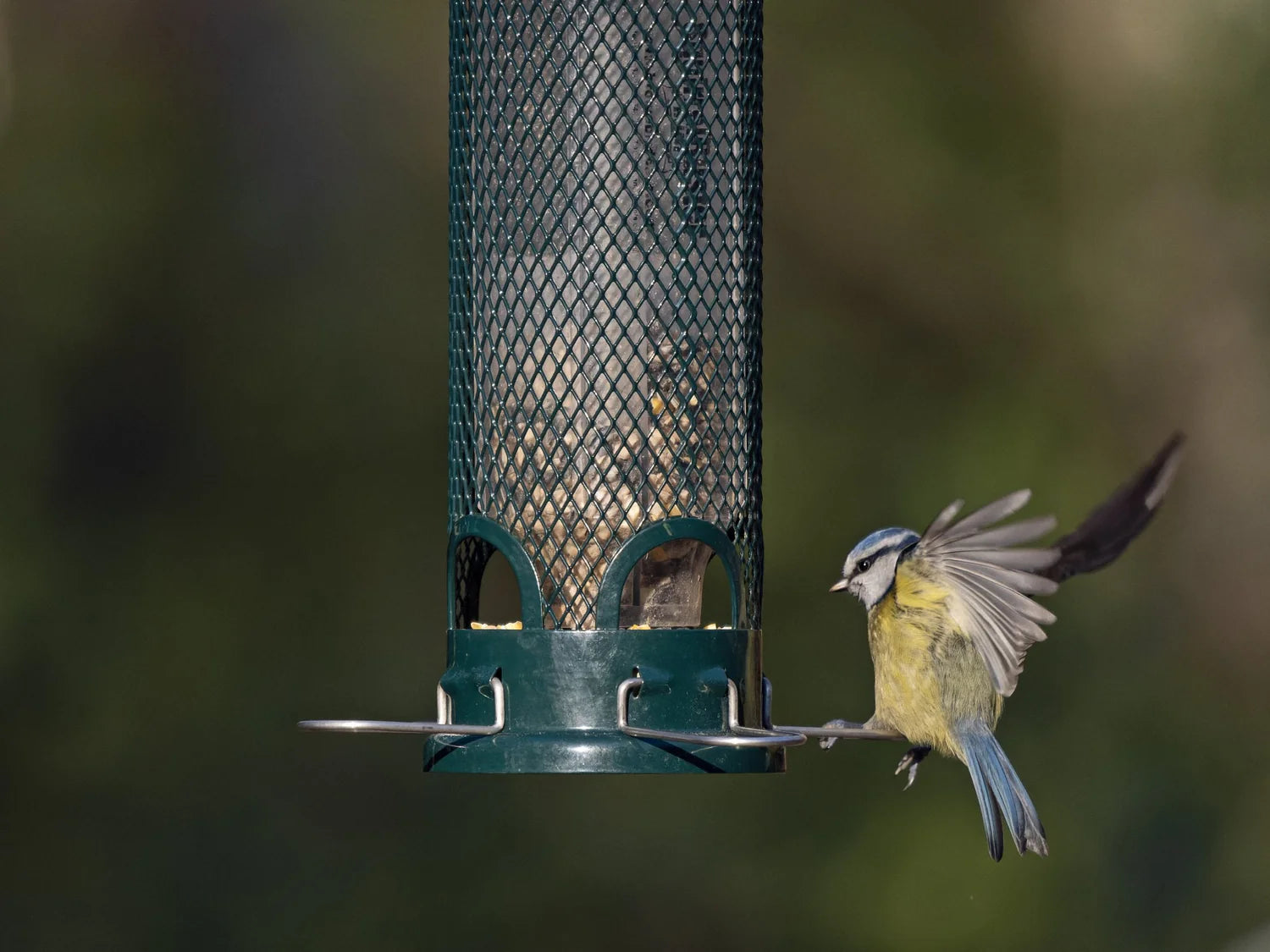
Squirrel-Proof Feeders
These feeders feature protective cages that prevent squirrels from accessing the seed reserves, ensuring that birds can feed safely.
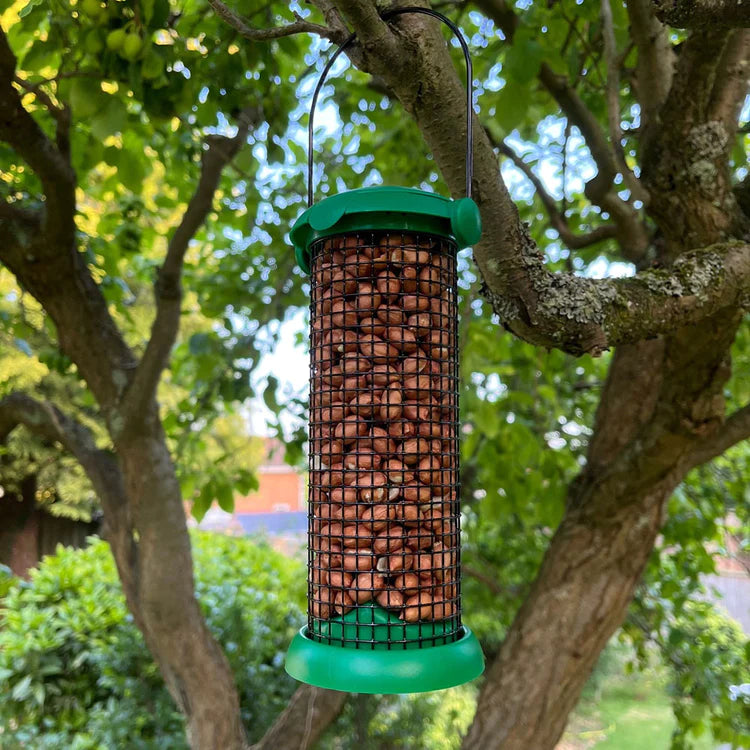
Peanut Feeders
Designed for species that enjoy peanuts, these feeders are constructed to allow easy access for birds while keeping the food secure.
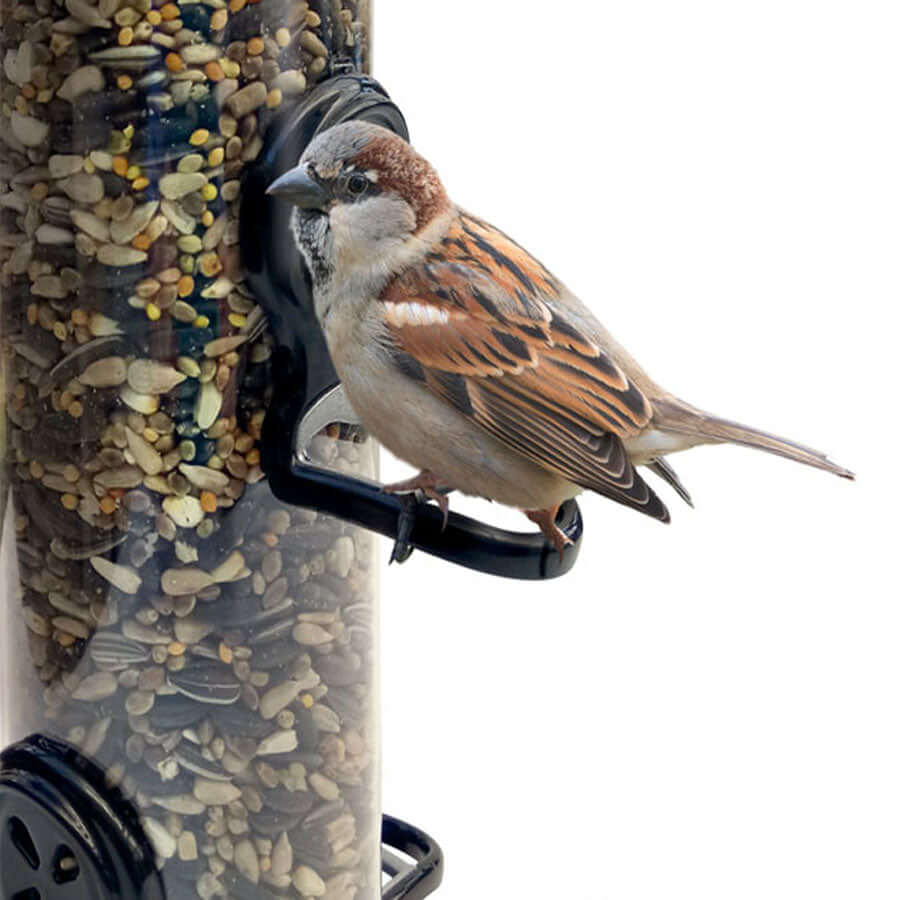
Seed Feeders
Seed feeders come in various designs suitable for different bird species, ensuring that your garden visitors have access to their preferred seeds.
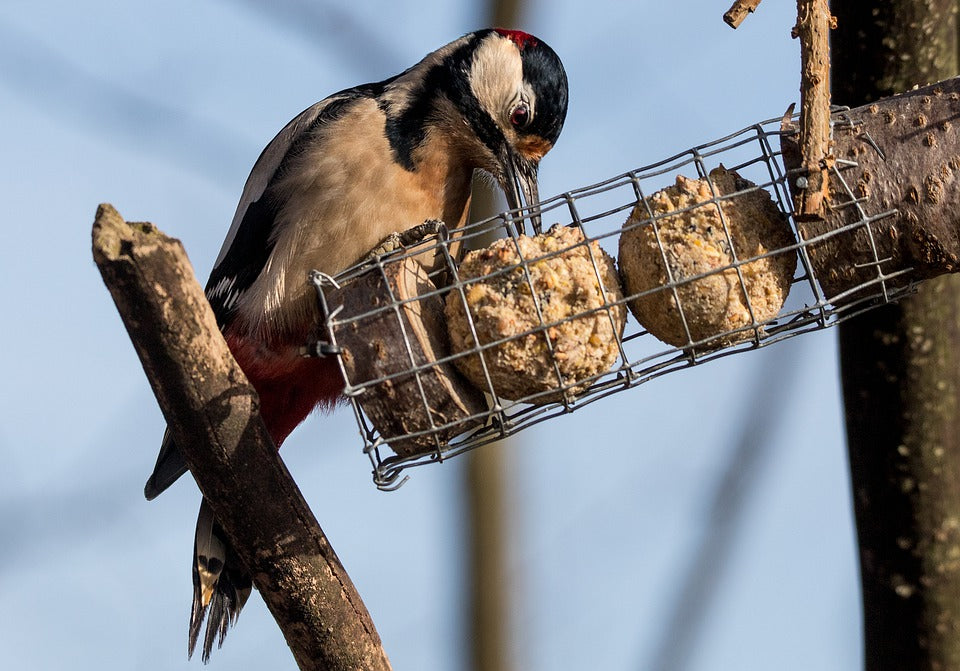
Suet Feeders
Ideal for offering high energy suet, these feeders are particularly useful during colder months when birds require additional fat reserves.
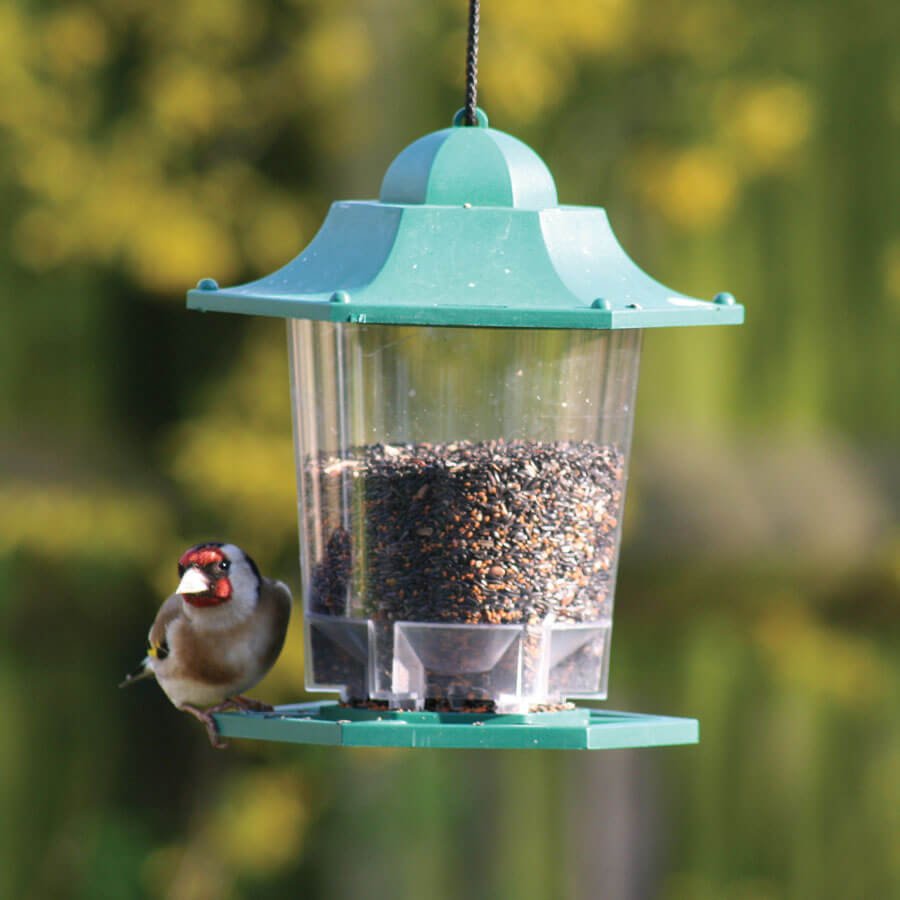
Choose the right feeder for your garden birds from our complete collection.
-
Squirrel Resistant Cage Bird Seed Feeder
Regular price £19.95Regular priceUnit price / per£19.95Sale price £19.95Sold out -
Ring-Pull Seed Feeder
Regular price From £19.99Regular priceUnit price / per -
Squirrel Resistant Cage Peanut Bird Feeder
Regular price £19.95Regular priceUnit price / per£19.95Sale price £19.95Sold out -
My Favourites Bird Seed Feeder
Regular price £20.99Regular priceUnit price / per£20.99Sale price £20.99
The Importance of Hygiene and Cleaning
Maintaining bird feeders is essential for the health of visiting birds. A dirty feeder can
spread diseases such as salmonella and avian pox, which can be harmful to bird
populations.
To keep your feeders clean and safe:
-
Regular Cleaning
Wash feeders with warm soapy water or a mild disinfectant at least once a fortnight.
-
Rinse Thoroughly
Ensure that no soap or cleaning solution residue remains before refilling.
-
Remove Mouldy Food
Always check for and remove any damp or mouldy food, as it can be harmful to birds.
-
Rotate Feeding Spots
Moving feeders occasionally prevents waste build-up and reduces the risk of disease transmission.
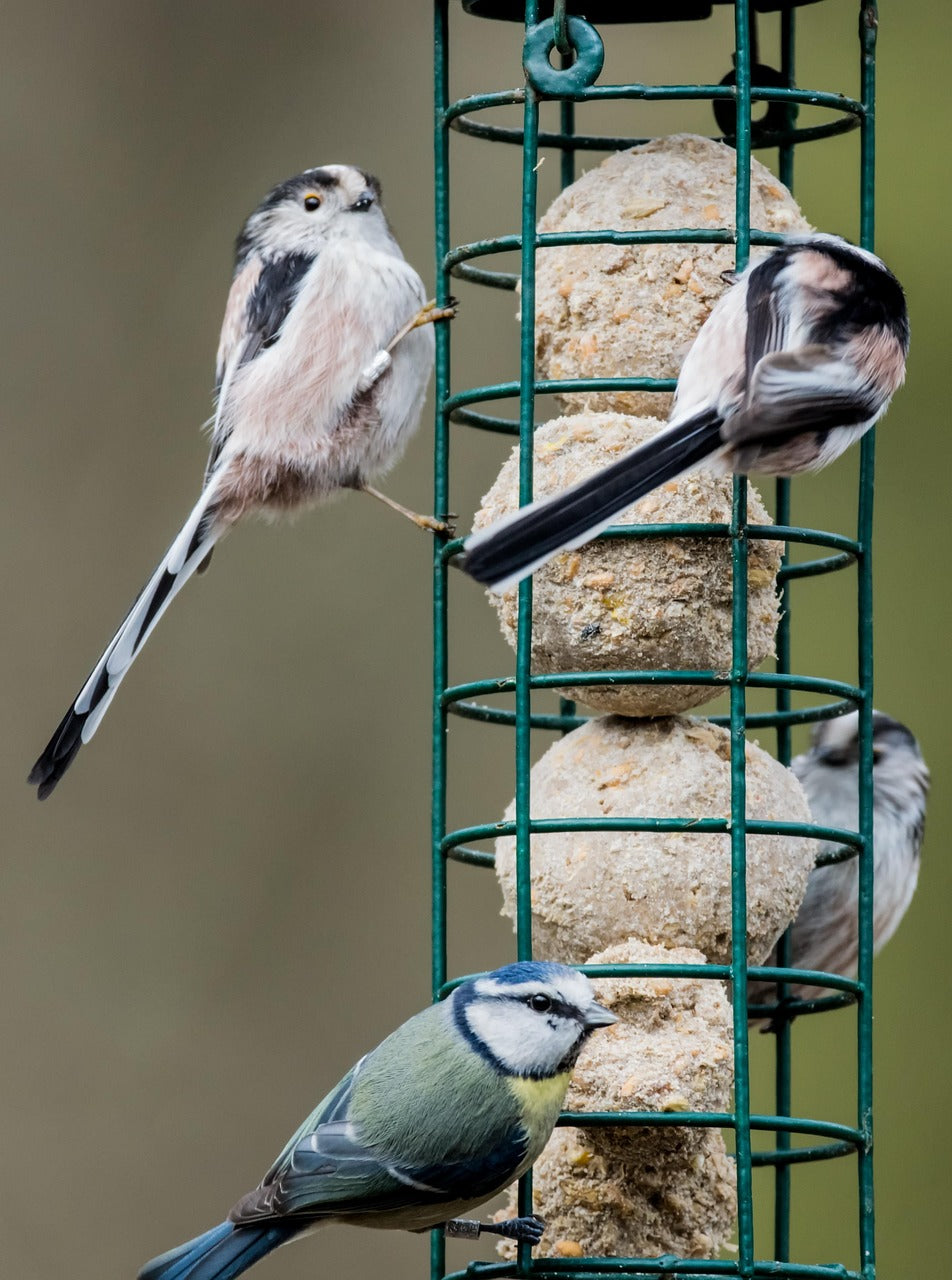
By selecting the appropriate feeders and maintaining them properly, you can create a welcoming environment for a variety of bird species in your garden. Observing your garden birds up close provides endless enjoyment and contributes to the conservation of local wildlife.









